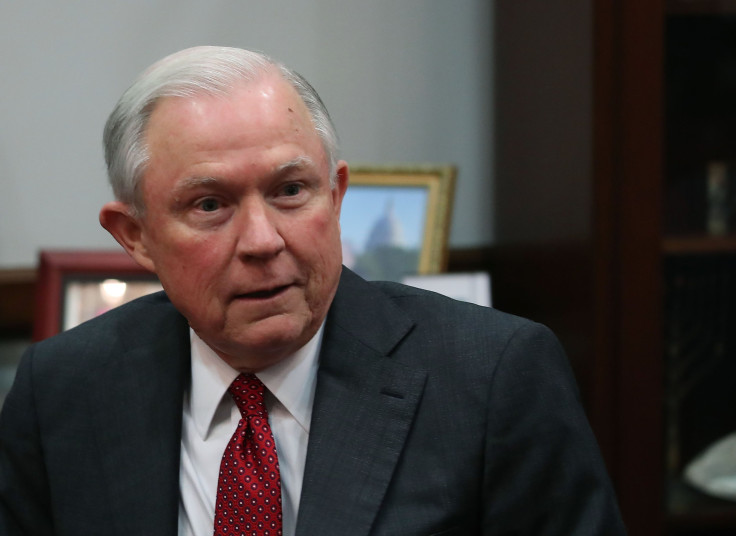Jeff Sessions And Marijuana: Donald Trump's Attorney General Pick Against Legal Weed

Colleagues famously detailed in 1986 that Jeff Sessions, then a 39-year-old attorney in Alabama, said his main point of contention with the Ku Klux Klan was that they smoked weed. He said he thought the folks in the white supremacist hate group were "okay, until he learned that they smoked marijuana," according to testimony that resulted in Sessions being denied a federal judge position.
Those accusations of racism have continually dogged Sessions, but Politico detailed Monday that the likely next attorney general has also not shifted his hard-line stance against marijuana. Sessions has kept up his anti-marijuana crusade for decades even as attitudes in the United States have shifted.
Roughly 57 percent of adults in the country feel the use of recreational marijuana should be made legal, according to Pew Research Center data. After a number of state ballot initiatives on Election Day, seven states have now decided to fully legalize recreational marijuana: Alaska, California, Colorado, Oregon, Massachusetts, Nevada and Washington. Maine also narrowly passed a legalization law this year but a recount is underway. Dozens others have passed laws legalizing medical marijuana.
Sessions, however, said this year that "good people don't smoke marijuana" and that it was a "very real danger" and "not the kind of thing that ought to be legalized," Politico reported.
Sessions hasn't shared his plans for how he'll serve as attorney general, but he has the ability to quickly combat legalized marijuana because while states have legalized the drug, it remains illegal at the federal level. It's a delicate system President Barack Obama has called "untenable." Sessions has openly criticized Obama's attorney generals, Eric Holder and Loretta Lynch, for taking a laissez-faire attitude toward enforcement.
As the country's top law enforcement officer, Sessions would be able to arrest marijuana farmers, retailers and users "with little more than the stroke of his own pen," Politico noted. Such action from Sessions would be a major blow to states that have legalized marijuana, Colorado and Washington especially, as the industry has already grown to be worth some $7 billion in annual sales.
Marijuana advocates are concerned. "He could raid and prosecute people for marijuana even in a state like New York where it is legal for medical use," Bill Piper, senior director for national affairs at the Drug Policy Alliance, told the New York Daily News. Sessions could even go after his home state of Alabama, which this year allowed people with debilitating medical issues, most notably epilepsy, to use cannabidiol, which is made from the marijuana plant.
© Copyright IBTimes 2024. All rights reserved.






















